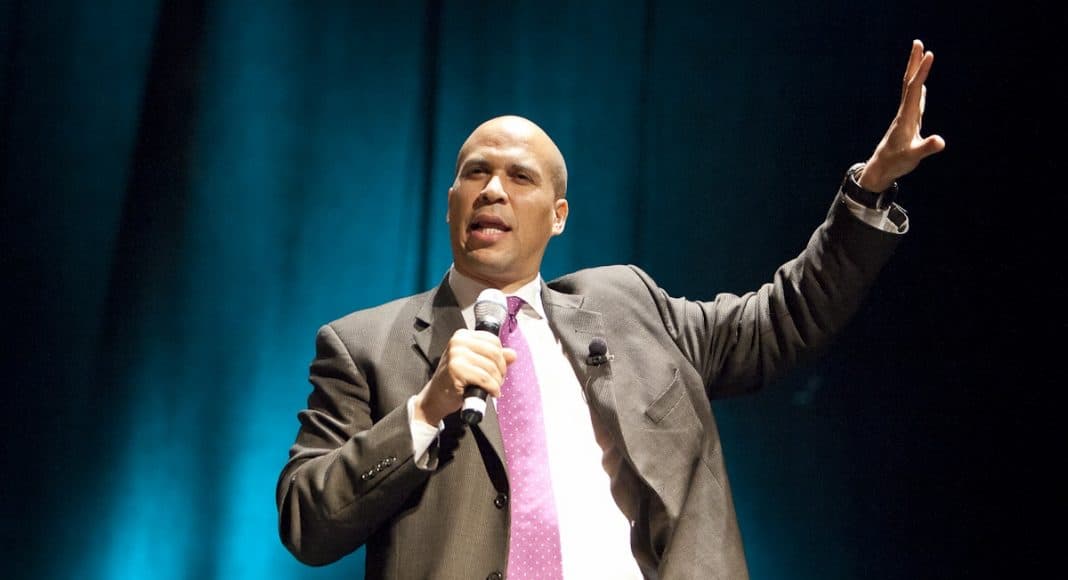When Bernie Sanders announced he was in favor of removing marijuana from any schedule in the Controlled Substances Act, it was a big deal. He was the first serious presidential candidate in either a general election or a primary to take such a forward-looking stance, and it at least temporarily brought the issue of cannabis legalization to the front of voters’ minds.
In the general election, of course, neither Hillary Clinton nor Donald Trump supported legalization. Clinton’s position was to do more research and otherwise leave it to the states, while Trump waffled between supporting medical marijuana, to leaving it to the states, to outright hostility.
When 2020 rolls around, however, it is becoming increasingly likely that whomever the Democrats nominate will be vocally in favor of legalization. Less than a year into President Trump’s term, Democratic senators are already moving to position themselves as the party’s next nominee.
And, as reported in Politico, those candidates are increasingly moving in the direction of legalization. Senator Kamala Harris of California, a former prosecutor and state Attorney General, has voiced support for decriminalization. Senator Kirsten Gillibrand of New York has vocally supported various medical marijuana bills in the past few years.
-
Related Story: 5 Ways Cory Booker’s Marijuana Bill Could Change Everything
Finally, Senator Cory Booker of New Jersey has gone so far as to introduce a bill fully legalizing marijuana at the federal level. Booker’s bill would deschedule marijuana, retroactively expunge the criminal records of those convicted of federal marijuana possession or use charges, and withhold federal law enforcement dollars from states with arrest rates and incarceration rates for marijuana crimes that skew heavily against poor people and racial minorities.
Unfortunately, Booker’s bill has no chance of passing or even being debated while Republicans hold the House, the Senate, and the White House. But it does draw a clear line in the sand for all would-be 2020 contenders on the Democratic side.
The real story here is that the Democratic Party is getting to the point where it must support legalization to stay relevant. There seem to be three types of Democratic politician right now: Sanders-style social-democrats, Clinton-style Baby Boomer liberals, and Booker/Harris/Gillibrand style young liberals.
There are a few centrist/conservative Democrats still out there (e.g. Joe Manchin of West Virginia), but most of the rest of the party falls largely into one of the other alignments. The difference between the Clinton group and the Booker group isn’t based so much on policy as it is on candidate age and priorities. Baby Boomers (people born between the mid-1940s and the early 1960s) were the generation most influenced and susceptible to the War on Drugs.
For as long as the Boomers have made up the core of the Democratic party, the party has been unwilling to move strongly in support of marijuana legalization. But we are now seeing a shift in the political landscape. White working class voters were up for grabs in the past, but that demographic seems to be moving toward the Republican party in droves.
For Democrats to survive, they need to pull stronger numbers from their core demographics, including minorities disproportionately affected by the War on Drugs and millennials who never understand why marijuana was demonized, groups that overwhelmingly support cannabis legalization.
President Trump has always been shifty on policy, but his ardently anti-cannabis Attorney General, Jeff Sessions, presents an easy foil for pro-legalization Democrats to compare themselves to. Other than exceptions like Rand Paul and Dana Rohrabacher, the Republican party remains generally anti-marijuana.
And marijuana legalization is the kind of simple, understandable policy that Democratic politicians should point to as positive differentiators from their competitors. If Republicans start to see their stance against marijuana as a political liability, they too will start shifting in large numbers. Looking forward to 2018 and 2020, it is becoming increasingly clear that cannabis legalization will be both good policy and good politics.
Robert McVay is a partner at Harris Bricken focusing on corporate, finance, and transactional matters for clients both inside and outside the cannabis industry.
This story was first published on Canna Law Blog.


